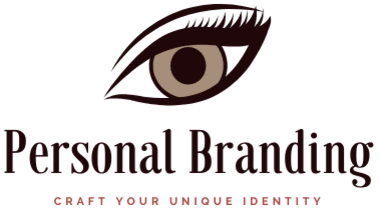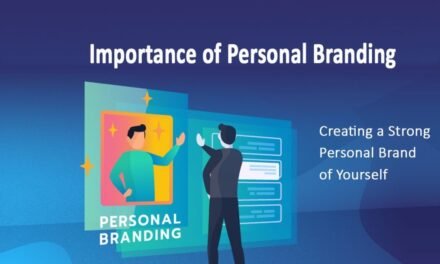Personal Branding: What It Is & Why It Matters
In today’s competitive and interconnected world, personal branding has become more than just a buzzword; it’s a crucial strategy for professionals looking to stand out and create lasting success. Whether you’re an entrepreneur, a corporate leader, or a freelancer, the concept of personal branding plays a significant role in shaping how you’re perceived in your industry. But what exactly is personal branding, and why does it matter?
What Is Personal Branding?
Personal branding is the process of creating and managing your unique professional identity. It’s how you present yourself to the world — both online and offline. In essence, it’s the combination of your skills, experiences, values, and personality that defines who you are and what you stand for in the workplace and broader professional community.
While personal branding often involves strategic marketing techniques, it’s not about creating a false or exaggerated image. Rather, it’s about authentically communicating your strengths, passions, and expertise. Think of it as a way to highlight what makes you distinct from others in your field and how you can add value to the organizations or communities you’re part of.
Harvard Business School’s blog outlines the key components of personal branding, suggesting that professionals can take control of how they are perceived in the workplace by curating their reputations deliberately and consistently. It’s about crafting an image that accurately reflects who you are and what you contribute to your profession.

Why Personal Branding Matters
Personal branding can significantly impact your career and professional growth. Here are some reasons why personal branding matters:
- Differentiation in a Competitive Market
In today’s crowded job market and entrepreneurial landscape, standing out is essential. Personal branding allows you to differentiate yourself from others by showcasing your unique skills, strengths, and experiences. Whether you are applying for a job, seeking a promotion, or pitching your business, your personal brand can give you a competitive edge.
When hiring managers or clients look for someone to fulfill a particular role or solve a problem, they want to know what makes you the best choice. A strong personal brand helps them understand exactly why you’re qualified and how you can make a difference.
- Building Trust and Credibility
One of the most powerful benefits of personal branding is that it can help build trust and credibility. As you consistently showcase your expertise and values, people begin to trust you and see you as an authority in your field. Trust is critical in every professional relationship, whether with clients, colleagues, or employers.
A strong personal brand isn’t just about self-promotion; it’s about creating meaningful connections with others based on mutual respect and trust. By showcasing your knowledge and skills in an authentic way, you foster credibility, which makes others more likely to engage with you or hire you.

- Career Advancement Opportunities
Personal branding can play a key role in advancing your career. Whether you’re looking to climb the corporate ladder or switch to a new industry, your personal brand can open doors to new opportunities. When you have a well-established reputation and a clear brand identity, you’re more likely to be top-of-mind when a job or business opportunity arises.
Moreover, personal branding allows you to align your skills and aspirations with the roles or businesses that resonate with your values, ultimately helping you find work that feels more fulfilling. A strategic personal brand can even help you stand out for promotions or leadership opportunities, allowing you to demonstrate the value you bring to the organization.
- Building a Professional Network
A strong personal brand can also lead to the growth of a professional network. As people begin to recognize your expertise and what you stand for, you’ll attract like-minded individuals, potential clients, or collaborators. Personal branding, especially on social media platforms like LinkedIn, can help you connect with influential people in your industry and join communities that can help elevate your career.
By creating a cohesive and professional image, you’ll also become more approachable and visible to others who may be looking for opportunities to work with you. This expanded network can provide a variety of career-boosting advantages, from finding mentors to gaining referrals and even landing new clients or business deals.
- Influencing Perception and Managing Reputation
In the digital age, it’s crucial to manage your reputation, and personal branding is an essential part of that. Your online presence, including your social media profiles, personal website, or blog, serves as a reflection of your personal brand. Through consistent messaging and professional conduct, you can influence how others perceive you and how you position yourself in the marketplace.
Having a strong personal brand helps you control the narrative surrounding your professional reputation. For example, you can take advantage of thought leadership platforms to showcase your knowledge or share your insights on industry trends. By doing so, you’re actively managing the way people perceive you, rather than leaving it to chance.
- Increased Job Satisfaction
When you build a personal brand that aligns with your authentic self, you are more likely to engage in work that you are passionate about. This alignment between your personal brand and your professional life can contribute to greater job satisfaction, as you’ll be focusing on areas where your strengths, interests, and values intersect.
Personal branding helps you identify what you truly care about and what kind of work is most fulfilling for you. As a result, you’re more likely to pursue opportunities that align with your personal and professional goals, leading to greater satisfaction and success in your career.

Steps to Build Your Personal Brand
Building a personal brand is not an overnight process, but the results can be transformative. Here are a few key steps to help you get started:
- Define Your Unique Value Proposition (UVP)
The first step in building your personal brand is identifying what makes you unique. This means understanding your strengths, skills, passions, and values. What do you bring to the table that others don’t? Once you define your UVP, it becomes easier to communicate your worth to potential employers, clients, or collaborators.
- Consistency Is Key
Once you’ve identified your personal brand, it’s important to maintain consistency in how you present yourself across different platforms. Whether it’s through your LinkedIn profile, personal website, or social media accounts, ensure that your message, tone, and visual identity align with your brand.
- Engage with Your Audience
Personal branding is not a one-way street. Engage with your audience by sharing content, commenting on industry trends, and connecting with people in your field. Building relationships through consistent engagement is essential for growing your brand’s presence and credibility.
- Showcase Your Expertise
A key element of personal branding is positioning yourself as an expert in your field. You can achieve this by writing articles, hosting webinars, speaking at events, or simply sharing your insights on platforms like LinkedIn. The more you showcase your knowledge and expertise, the stronger your personal brand becomes.
Conclusion
Personal branding is no longer optional; it’s a vital tool for professional success. Whether you’re a seasoned executive, an entrepreneur, or just starting out in your career, investing time and effort in building and managing your personal brand can unlock new opportunities and help you advance in your professional life. By differentiating yourself, building credibility, and engaging with your audience authentically, you can create a personal brand that will not only shape how others perceive you but also drive your long-term success.


